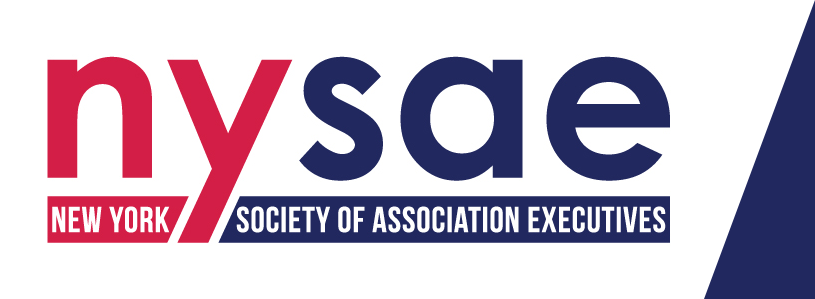'Tis the Season: Act in Time, or Your Nonprofit Will Say Goodbye to Any DMCA Safe Harbor Protection from Copyright Infringement Liability
Print this Article | Send to Colleague
Do you have members posting content on your blogs, supporters sharing photos on your website, or any other third parties providing content directly to your website? If so, you need to renew your Digital Millennium Copyright Act (DMCA) Designated Agent designation with the Copyright Office. (If you are unfamiliar with the DMCA Designated Agent concept, please read the explanation below.) Any nonprofit that may have previously qualified for the safe harbor from liability for copyright infringement under Section 512 of the DMCA will lose any ability to claim this safe harbor if the nonprofit does not renew its designation of agent within three years of the last online filing (or amendment). This is coming up soon, assuming your nonprofit did this correctly between December 1, 2016 and December 31, 2017. As we have noted previously, nonprofits are not immune from copyright infringement liability simply because of their nonprofit status.
In late 2016, the Copyright Office issued a rule that everyone needed to file new online DMCA agent designations between December 1, 2016 and December 31, 2017. Any DMCA agent designations that were filed at the Copyright Office prior to December 31, 2016 expired on December 31, 2017 if they were not renewed online. If you did not file any new DMCA agent designation online between December 1, 2016 and December 31, 2017, then your designation has expired and your nonprofit does not qualify for the safe harbor under the DMCA. In that event, your nonprofit should file one immediately and hope that you had no copyright liability exposure during the intervening time.
If your nonprofit did file a new online designation of your DMCA agent between December 1, 2016 and December 31, 2017, then you must file a renewal within three years of the date you filed your original online designation (unless you already amended in the meantime, in which case your three-year clock runs again from the date you amended your designation). This means that many companies have these renewals due between December 1, 2019 and December 31, 2020, depending on when they filed the original online designation. Simply put, if you filed your online designation of agent on December 15, 2016, then your renewal is due three years later, i.e., no later than December 15, 2019. If you filed your designation of agent on December 15, 2016, but then amended your online designation in the meantime on January 1, 2018, then your renewal is not due until January 1, 2021.
In case you are unfamiliar with these issues, here are the key points:
Explanation of the DMCA Safe Harbor
Under U.S. copyright law, if a third party uploads or posts copyrighted material to your website (often referred to as "user-generated content"), and the third party did not have authorization to do so from the copyright owner/exclusive licensee, your nonprofit can be held strictly liable for copyright infringement. This is the case even if your nonprofit did not know the material was infringing.
However, if you comply with the statutory requirements of Section 512(c) of the DMCA, your nonprofit may qualify for a "safe harbor" from this strict liability for the infringing material posted or uploaded by another party to your website, subject to some specific limitations. But your nonprofit must do several things in an effort to qualify. These include the following:
(1) Designate, on your website in a publicly available location, an agent to receive notifications from third parties of claimed copyright infringement and include the name of the service provider, and the name, address, phone, fax, and email of the specific designated agent you have selected to receive notifications. (Practice tip: We recommend that you create a special email address that funnels to multiple personnel within your organization to increase the chances notifications are not missed in an otherwise full email box.)
(2) Provide the U.S. Copyright Office with the required information for the designated agent. Courts have held that if you do not directly provide the U.S. Copyright Office with the required information about your designated agent, this is fatal to your request for a safe harbor from liability — period. This is the step that we find clients most often overlook.
(3) Adopt, communicate to users, and implement a repeat infringer policy, and terminate repeat infringers in appropriate circumstances.
(4) Respond expeditiously to any effective, validly issued "take down" notices you receive. Because some notifications, and your response thereto, can be nuanced, we recommend you discuss with copyright counsel your own protocol for responding to these notifications.
What Actions Should Your Nonprofit Take?
First, we recommend that you check the Copyright Office's DMCA Designated Agent Directory to make sure you filed your online designation in the first place. If you have not, do so immediately.
Second, check the date you filed your last online designation of DMCA agent, or amendment. (Note: This must have been done online, as any previously filed paper designations are long expired.) Make sure that you file a renewal within three years of that date. If you do not, your previous designation will expire and you will lose your ability to seek a safe harbor from liability. Update your DMCA agent designation and correct outdated information or renew the registration, as applicable. While the Copyright Office indicates that it will email an automated reminder of the renewal deadline, we suggest calendaring the next renewal or amendment for follow-up.
Third, make sure you are following the steps enumerated above and that you educate your internal teams responsible for this function.
Fourth, review your DMCA notice-and-takedown procedures to ensure they are likely sufficient to provide protection from claims of copyright infringement.
With these steps, if you find your nonprofit accused of copyright infringement for third-party posted material, you will be prepared to take the necessary steps to deal with the issue.

